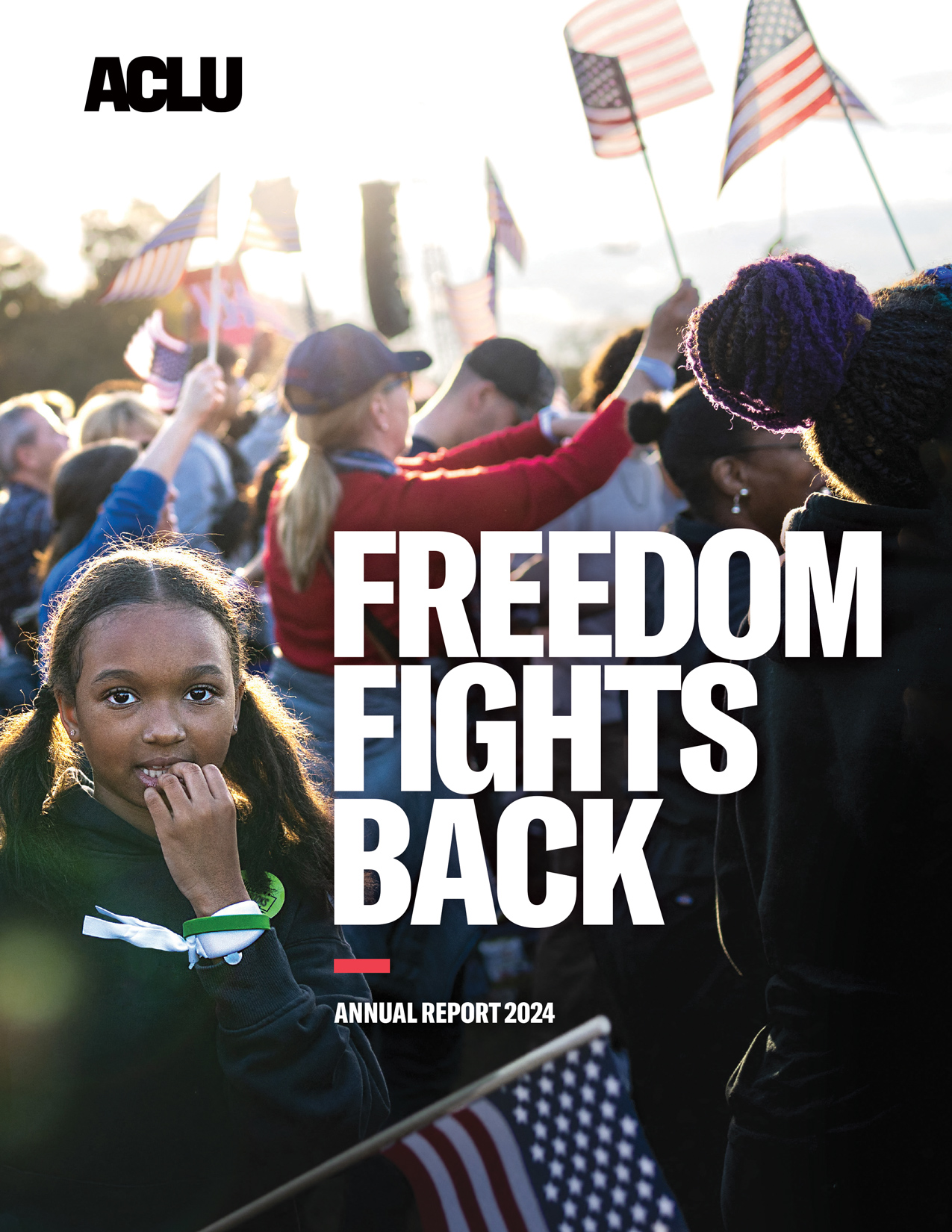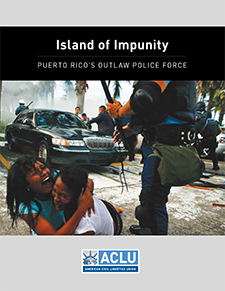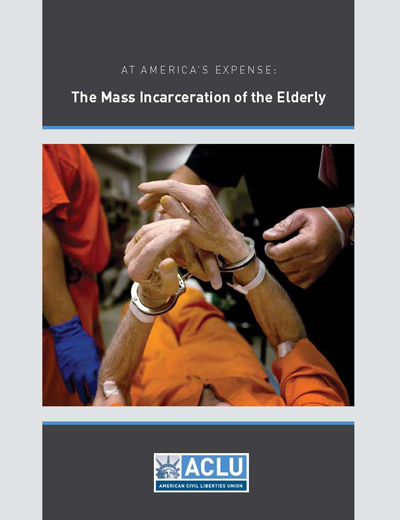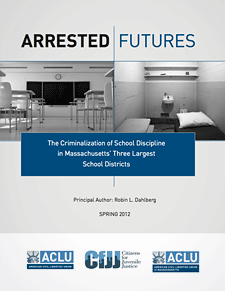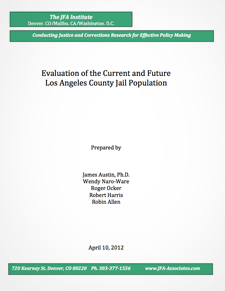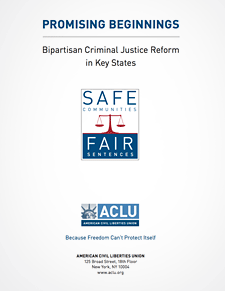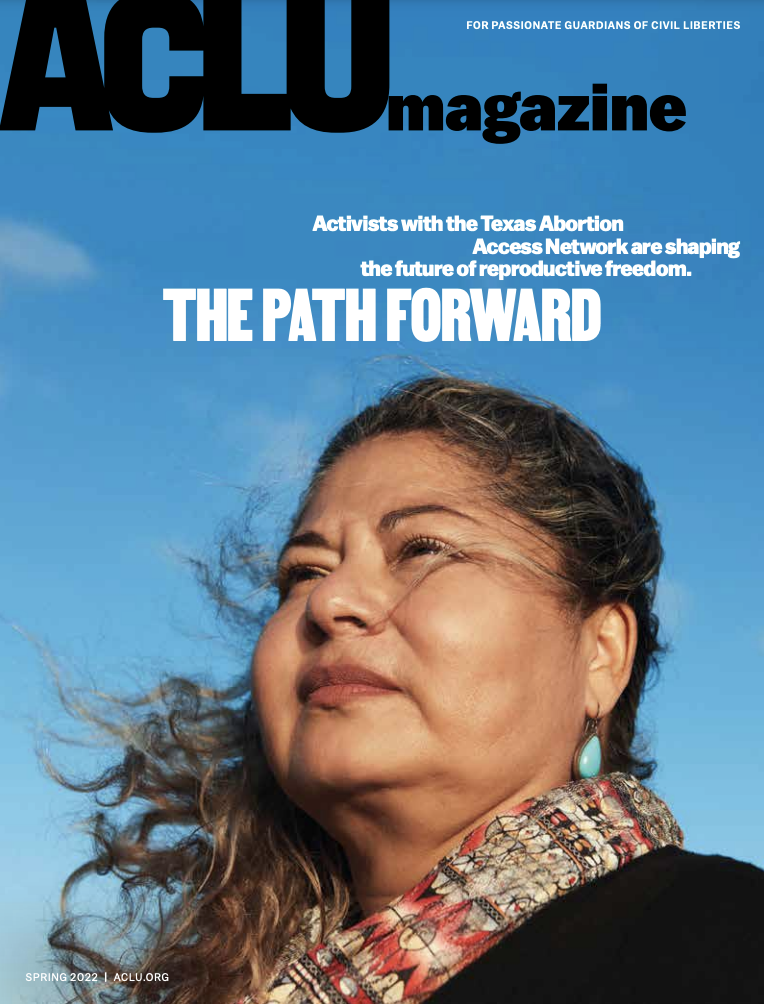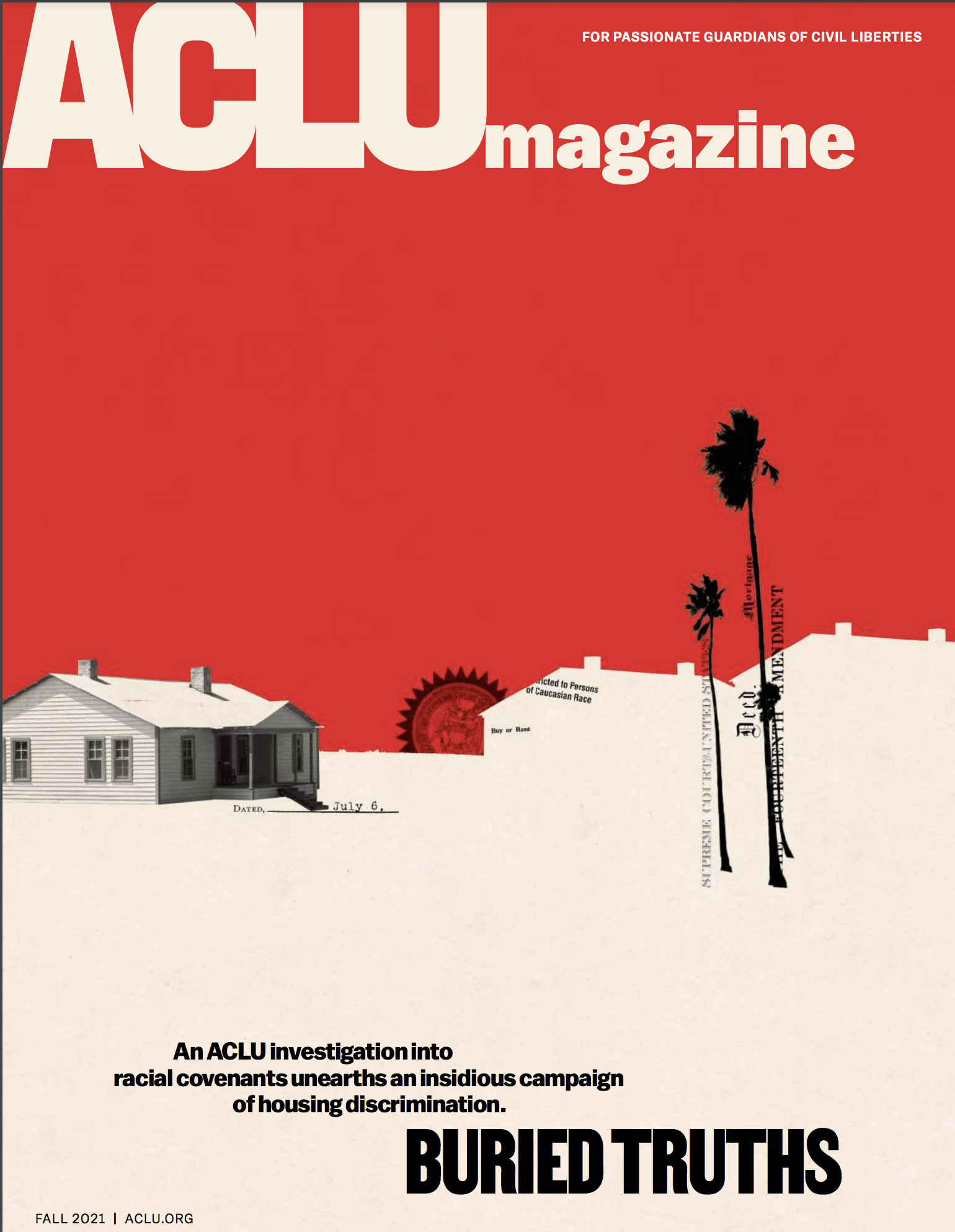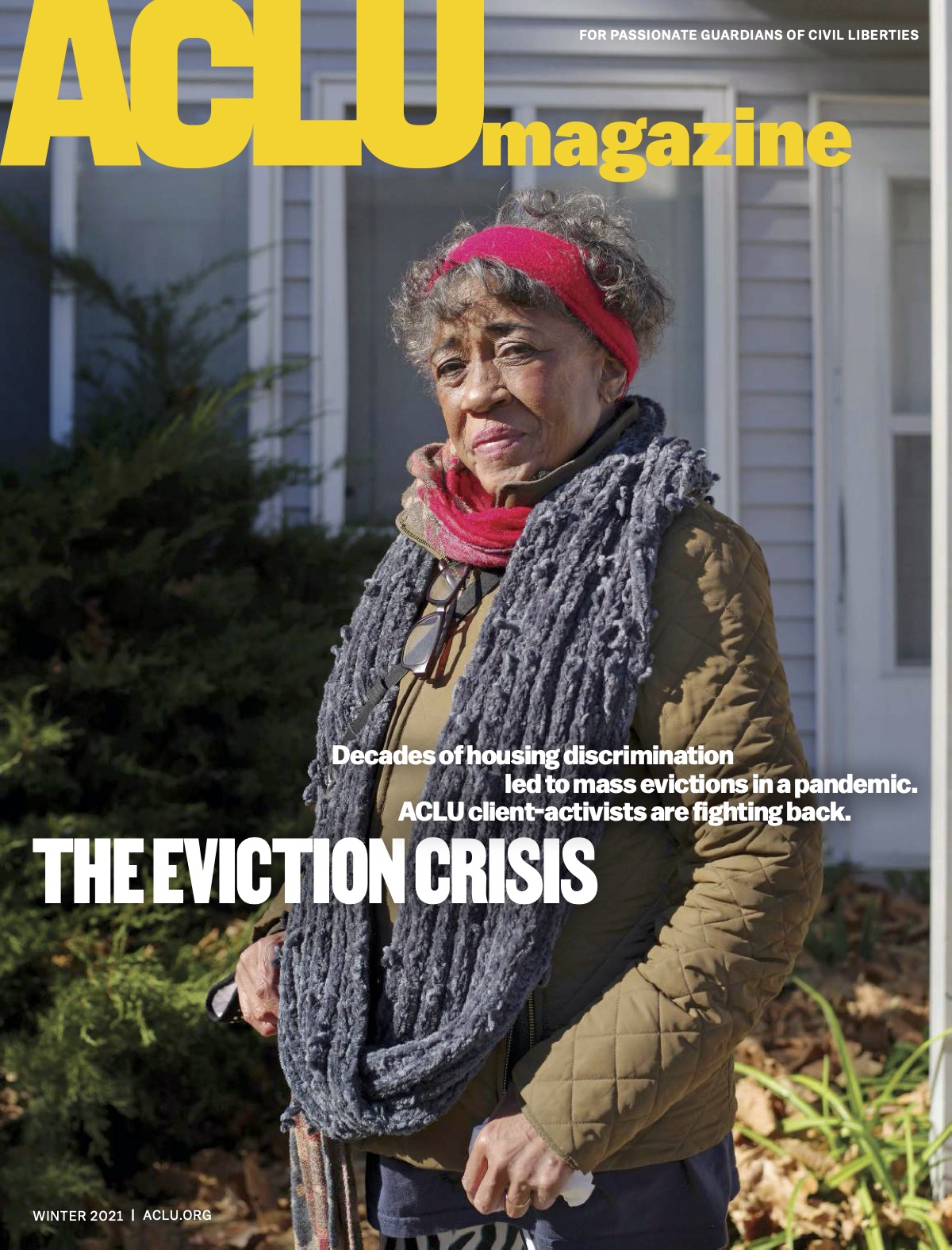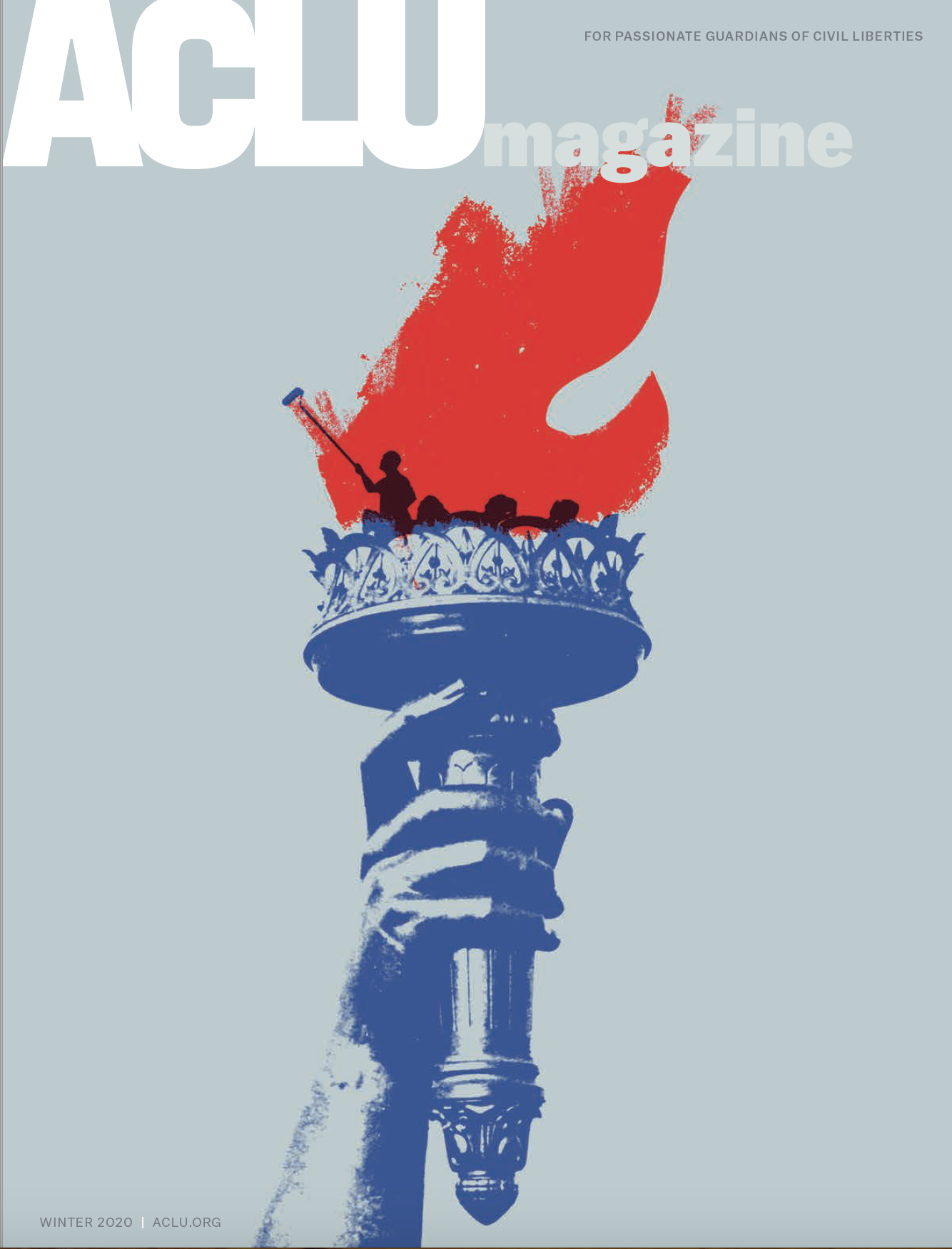Research & Publications
Access in-depth resources and analysis published by the ACLU regarding our most pressing civil liberties issues.
ACLU 2024 Annual Report
The ACLU’s 2024 annual report highlights how the organization worked around the clock this year to safeguard voting rights ahead of the November elections, protect bodily autonomy, defend free speech, and much more. Alongside breakdowns of the ACLU’s key wins and efforts throughout 2024, the report tells the stories of ACLU activists, advocates, and clients who are on the front lines of this fight.
All Publications
Search will open in a new tab using DuckDuckGo
Island of Impunity: Puerto Rico's Outlaw Police Force
A report released by the ACLU in June 2012 concludes that the Puerto Rico Police Department is plagued by a culture of unrestrained abuse and impunity. The PRPD – which, with over 17,000 officers, is the second-largest police department in the U.S – is charged with policing the Commonwealth of Puerto Rico.
In July 2013, the U.S. Justice Department entered into a legally binding consent decree with the Puerto Rican government that requires sweeping reforms to end the widespread police brutality on the island. Learn more about the historic agreement here.
After a comprehensive six-month investigation of policing practices in Puerto Rico, building on eight years of work by the ACLU of Puerto Rico documenting cases of police brutality, the ACLU concluded that the PRPD commits serious and rampant abuses in violation Puerto Ricans' constitutional and human rights, including:
- Use of excessive and lethal force against civilians, especially in poor and Black neighborhoods and Dominican communities, often resulting in serious injury and death. Read More.
- Violent suppression of peaceful protestors using batons, rubber bullets, and a toxic form of tear gas that was phased out by mainland U.S. police departments in the 1960's. Read More.
- Failure to protect victims of domestic violence and to investigate reported crimes of domestic violence, rape, and other gender-based crimes. Read More.
The ACLU's research shows that these abuses do not represent isolated incidents or aberrant behavior by a few rogue officers, but that such police brutality is pervasive and systemic, island-wide and ongoing. In fact, our research has found that the PRPD's disciplinary, investigatory, and reporting systems prevent accountability. Read more.
The report offers numerous detailed recommendations, including:
- The Justice Department should enter into a court-enforceable and court-monitored agreement with the PRPD.
- The PRPD should develop and implement policies on the use of force, improved training, the investigation of civilian complaints of police abuse, and the discipline of officers.
- Puerto Rico's legislature should create an independent and effective oversight body to monitor the PRPD. Read more»
The ACLU's report comes nine months after the release of a scathing U.S. Justice Department report on the PRPD, which found a pattern and practice of constitutional violations by the department, including widespread use of excessive force. The Justice Department investigation, the findings of which were long-delayed, focused on 2004 to 2008. The ACLU's report focuses on incidents from 2007 through May 2012.
At America's Expense: The Mass Incarceration of the Elderly
At America’s Expense compiles extensive data detailing epidemic of aging prisoners in the United States. It provides a comprehensive 50-state and federal analysis of the unnecessary incarceration of aging prisoners and provides a fiscal analysis showing the actual amount states would save, on average, by releasing aging prisoners: over $66,000 per year per released prisoner. The report also includes new data showing that the elderly population is growing because of harsh sentencing laws and not because of new crimes, as well as data highlighting the low public safety risks posed by elderly prisoners. At America’s Expense supplies detailed and practical legislative solutions that states and the federal government can implement to address the dramatic and costly growth in the number of elderly prisoners without putting communities at risk.
- Introduction
- Findings & Recommendations
- Acknowledgments & Methodology
- The Aging Prison Population & Its Consequences
- Recommendations
- Conclusion
- Appendix: Model Conditional Release of Aging Prisoners Act
Arrested Futures: The Criminalization of School Discipline in Massachusetts' Three Largest School Districts
On October 23, 2007, a 14-year-old boy at the Kennedy Middle School in Springfield, Massachusetts, was arrested after he refused to walk with a teacher to her office and instead returned to his classroom. According to the police report, he yelled at the teacher, bounced a basketball in a school hallway, failed to respond to a police officer’s request to go with the teacher and slammed his classroom door shut. He was subsequently taken into police custody, handcuffed, transported to the police station and charged with “disturbing a lawful assembly.”
This incident illustrates a matter of growing concern to educators, parents and advocates: the extent to which the permanent on-site presence of police officers in public schools results in the criminalization of disruptive behavior. While other research has focused on zero-tolerance policies and the overuse of out-of-school suspension and expulsion as significant factors in feeding the “School-to-Prison Pipeline,” this report focuses on the additional problem of arrest, in particular the use of arrest to address behavior that would likely be handled in the school by school staff if not for the presence of on-site officers.
From the American Civil Liberties Union, ACLU of Massachusetts, Citizens for Juvenile Justice
Principal Author: Robin L. Dahlberg
Evaluation of the Current and Future Los Angeles County Jail Population
This report is designed to provide a comprehensive evaluation of the Los Angles County jail population in terms of its attributes, current and future population trends. More importantly, it provides a plan that will allow the Los Angeles Sheriff’s Department (LASD) to safely manage its jail population within its current jail facility capacity by implementing evidence-based policies that have been adopted in other jurisdictions. The plan has been reviewed by Sheriff Baca and he agrees with the plan’s recommendations that will allow him to close the antiquated Central Jail facility and still safely manage the growing number of AB 109 inmates and thus avoid costly jail construction.
Promising Beginnings: Bipartisan Criminal Justice Reform in Key States
The current economic crisis has put the spotlight on the exorbitant costs of our penal system, which has devastated some communities and absorbed billions of taxpayer dollars without producing a proportional decrease in crime rates. The convergence of societal and budgetary impacts of over-incarceration has carved out a window of opportunity for substantive reforms which prioritize efficiency and fairness over partisan politics. At both a national and state level, efforts are being made to address our incarceration crisis and enhance fairness in the system through initiatives such as revising outdated and ineffective sanctions, increasing the use of diversion programs and strengthening supports for safe, positive reintegration. The following report highlights key reforms from a diverse group of states that have all succeeded in cultivating bipartisan support for reform measures that are not only cost-effective, but are actually improving public safety through new programmatic initiatives and smarter sentencing guidelines. We seek to highlight these efforts as promising beginnings, underscoring the fact that these examples mark the first steps on the road to reform, and not the completion of a journey.
ACLU Magazine
Published twice a year, ACLU Magazine shares updates on the ACLU's critical litigation and advocacy work across the country and tells the stories of the activists, attorneys, and clients at the heart of each case and campaign. To receive ACLU Magazine by mail, become a monthly donor today.
Stay informed
Sign up to be the first to hear about how to take action.
By completing this form, I agree to receive occasional emails per the terms of the ACLU's privacy statement.
By completing this form, I agree to receive occasional emails per the terms of the ACLU's privacy statement.
